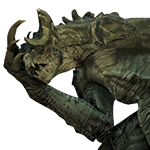Zed Duke of Banville
This still doesn't answer the main question what is alignment system good *for*?
Yeah, there are a lot of things it doesn't actively harm, but at this point it's like painting racing stripes on an MBT - ok, so it admittedly doesn't affect driving and doesn't degrade armour performance or cannon's effectiveness, but it does make your tank easier to spot and kill, so you don't do that unless you have a good reason.
So what's the rationale *for* an alignment system?
It's a bit worse than completely useless with live DM because DM and their players can communicate about character's motivation and similar stuff much better directly.
It's completely inadequate for a cRPG, because this isn't the level of abstraction you can handle with a relatively simple formal system.
It does however ruin a lot of interesting stuff:
- Imagine you have an order of paladins, a member of which is concerned about it becoming too extreme in its methods and wonders whether it hasn't lost its way and became as bad or worse than darkness it fights - oh that's easy - not fallen yet? Everything is ok.
- Ambiguous character who might be malevolent or not? Cast detect evil.
- Moral dilemma? Nope, objective answer exist and is knowable by the DM who needs to be able to make a ruling.
It doesn't really matter whether you are relativist or absolutist (what most of the idiots screeching in this thread fail to grasp). The very existence of moral alignment precludes having moral conundrums in game.
Alignment system is just a shitty piece of reductionism that often breaks stuff (even if it doesn't break ALL the stuff), serves no valid purpose and simply doesn't belong.
It does not help the GM or players communicate or make guesses about character motivation in PnP RPG.
It does not make computer any less hilariously unqualified for making statements about PC's motivation in a computer one.
It doesn't change the fact that deciding whether PC is remorseful ex-assassing seeking redemption, a disillusioned ex-paladin at the end of a long slide down or some dew-sipper's too(l/n) for hitting all the achievements in a single playthrough is not computer's job anyway, it merely needs to decide what world and characters do in response to a murderer gone saint or saint become murderer, without caring about the rest.
Suttie, however, failed to realize that the conflicts he envisages occurring in his alignment-less system are already (more or less) entirely possible within the two-axis nine-alignment system that describes personal ethos underlying the behavior of individuals. Indeed, Gygax had explicitly stated in the Dungeon Masters Guide that common alignment would not preclude warfare between nations or tribes. By removing alignment, Suttie is left with factional strife in which everyone acts in a purely utilitarian, or even Machiavellian, manner to further their individual or collective goals, without philosophical differentiation.
That's pretty blatantly false, because existence of meaningful philosophical and moral stances and conflicts between those is in no way predicated on existence of alignment system within game's ruleset.
If anything such system trivializes that by reducing it to simplistic mechanical model.
If you don’t care for the balance, you’re not a Druid. Just like if you don’t care about the law, you’re not a paladin. Per the rules, you actually can end up a fallen Druid of sorts that loses access to some spells.
You can take “evil” actions to preserve the balance or “good“ actions to save lives etc, but you won’t be starting crusades against evil.
(I missed a few points previously in the deluge of *complete* drivel)
What kind of balance we are talking about? Wilderness being neither overrun by civilization nor all kinds of monstrous hordes that oppose it is not something you can balance by making sure the number of puppies saved and kicked approximately evens out.
Another example of simplistic alignment system wringing any semblance of sense out of game's logic.
Wrong, it was a reputation system, since donating to the temple, for example, is specifically referred to as improving your reputation, not your karma.
If it walks like a karma system and quacks like a karma system it is a karma system.

BG karma, sorry,
reputation system is functionally identical to FO3 (dysfunctional) karma meter - down to being able to easily improve it by donating water/gold to beggars/temples.
Proper reputation tends to involve more than one party, be limited in scope and not omniscient.
You can argue it was broken and illogical at times or that the game TREATED it as if it were a karma system, but it's not a completely different system being referred to by the wrong name. It's clearly and consistently called a reputation system and doesn't influence alignment directly. Gaining a good reputation doesn't change your alignment
That only highlights how utterly pointless the alignment is.
And yeah, I can
see you being easily misled by labels, no matter how counterfactual.
Comes with the territory, I guess.
(though it does get you different bhaalspawn owers in the first game, hence why I say it's treated as karma, even though it isn't karma).
Yeah, it's so very obviously
not karma.
He didn't leave because of his alignment, he left because his character was written to be an evil bastard.
He was primarily written to be a greedy bastard. Other than grumbling about do gooders making him queasy he should be pretty happy to accept gold and stuff they are so gladly parting with, the fools.
Of course he would be equally happy bashing their heads in if there was money in it, probably grumbling about them making whole lot of unnecessary fuss about getting macefaced in purely businesslike fashion.
Yet he does leave because his alignment forces him to leave if party reputation reaches 19 or higher and to start bitching before that.
If it were about alignment, he wouldn't care about your actions, he'd stay with you provided you had a matching alignment.

So it's not about alignment even though RPCs' reaction to party's reputation is based solely on their alignment. What.

And yeah, alignment is completely dissociated from actions you take. You can be lawful good and just wantonly murder passerbys then free their corpses of their worldly possessions in the monocled world of biowarean BG, unlike the plebeian bethpizdian TES where stabbing and looting must necessarily occur without declaration of one's alignment - counterfactual or not.
I mean it makes sense.

All the sense.
All of it.
The very fact that evil characters can join a good party or vice versa proves alignment isn't the problem and it's not the straightjacket you keep trying to make it out to be.
Maybe they don't get to look over player's shoulder into their character sheet (if only they could expect player to return the favour) and can only base their judgement on what you insist is clearly reputation and, as such, can reasonably be assumed to be accessible to NPCs.

The stakes and actors. Completely elementary stuff.
A: Two kids seeing who can throw a rock the furthest to decide which is the better colour, red or blue. The loser must wear the colour he does not like for a day.
B: Two kids seeing who can throw a rock the furthest to decide which is true: 1+1=2 or 1+1=3. The loser must wear the colour he does not like for a day times the outcome he doesn't agree with.
I'll spell it out for you so you don't get lost in buts/ifs/whats/whens/whos/whys and wheres:
A: Subjective conflict with even stakes.
B: Objective conflict with unfair stakes favourable to the actor who's wrong.
If I had to sit there and watch one, I'd go with B, as would you.
I can see now why you find modern day Codex so attractive.

Not to mention that the idea that either side is “wrong” pre-supposed that evil is wrong.
If evil is wrong, then there’s no problem with labeling it as such. If it’s not always wrong, then labeling it won’t make a difference. And o layers won’t usually know unless they specifically divine the characters’ alignment anyway.
This newfangled relativistic absolutism thing is like too deep for me man.

























